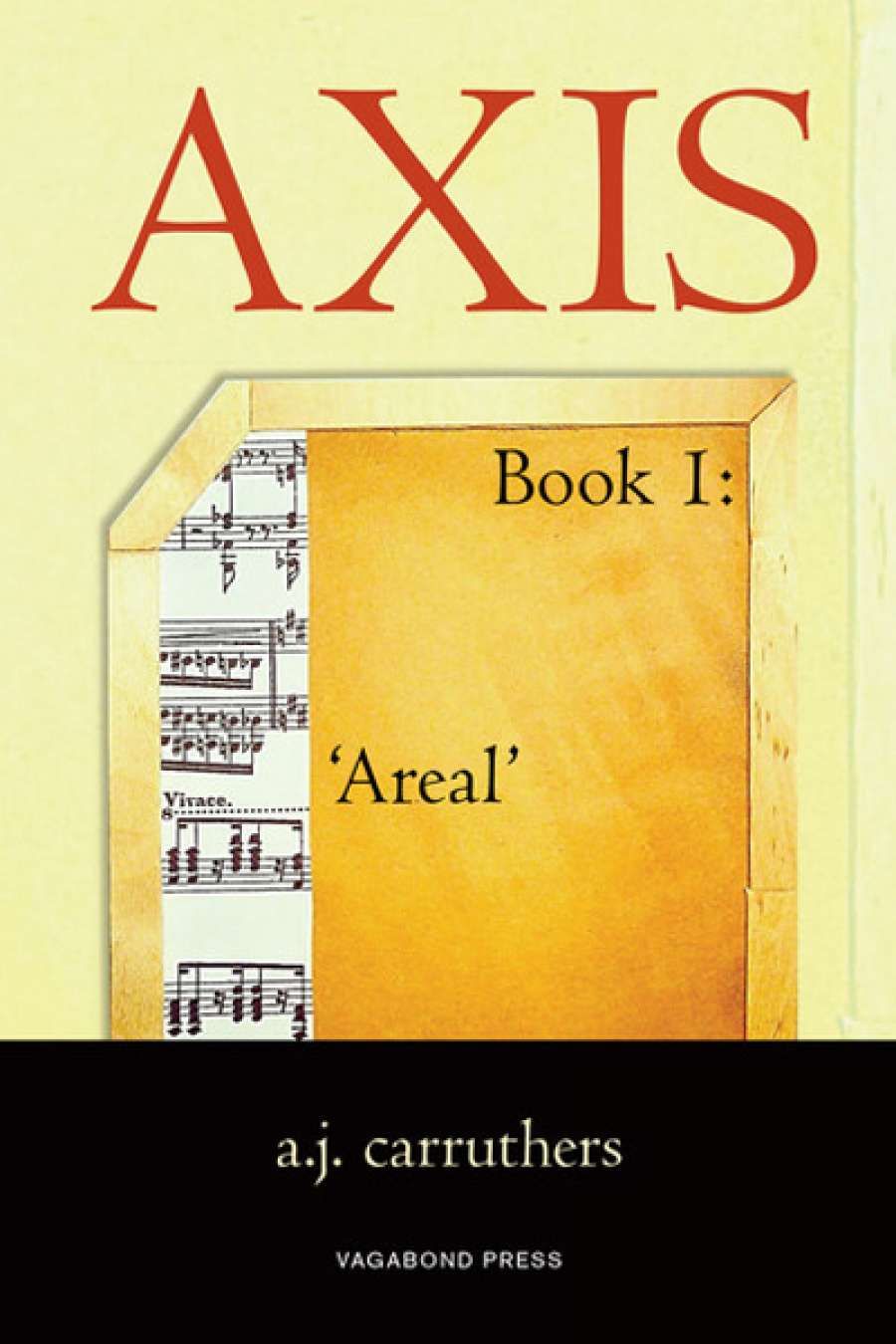
- Free Article: No
- Contents Category: Poetry
- Custom Article Title: Des Cowley reviews 'Axis, Book 1' by a.j. carruthers
- Review Article: Yes
- Online Only: No
- Custom Highlight Text:
With Axis, his first full-length publication, a.j. carruthers explicitly aligns himself with the lineage of the long poem. It is a bold move, if we consider that the major exponents of the form, from Ezra Pound to Anne Waldman, had invariably produced significant bodies of work prior to embarking on their poetic marathons. But ambition is fundamental to the long poem, and Axis, comprising thirty-one extended sequences and billed as ‘Book the first’, certainly outstrips Pound’s inaugural efforts – a mere sixteen Cantos issued in 1925 – by a country mile.
- Book 1 Title: Axis, Book 1: ‘Areal’
- Book 1 Biblio: Vagabond Press, $25 pb, 204 pp
Though Axis is a brazenly experimental work, carruthers has seen fit to incorporate a ‘how to’ kit – by way of preamble, discussion notes, and afterword – to assist the reader. Inspired by Andy Warhol’s use of split screen in Chelsea Girls, he opts for that ‘Well-worn form: the split page’, reminiscent of John Ashbery’s long poem for two voices ‘Litany’. Aside from this cinematic framing device, Axis reflects carruthers’ ongoing interest in musico-poetics. After all, he argues, if ‘instrumentalists must learn to play with two hands, and intone up to 4 or 5 voices simultaneously’, then so too must the poet (and by extension the reader) ‘learn how to play on several registers at once’.
Axis makes heavy demands on the reader. Its ‘split pages’ are best performed aloud in varying voices, or registers, that correspond to the call and response patterns of the poem. Once mastered, however, it becomes clear to what extent a.j. carruthers’ work aspires to the condition of music. By incorporating visual poems, concrete poems, collage, and musical notation, Axis
proves as much a delight for the eye as for the ear. Of the modernist canon, perhaps its closest counterpart is Louis Zukofsky’s monumental poem ‘A’; and, like that work’s mysterious coda, Axis reads like a poem in search of a performance.


Comments powered by CComment